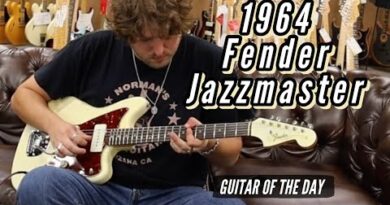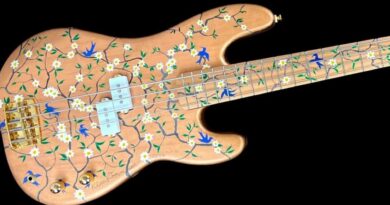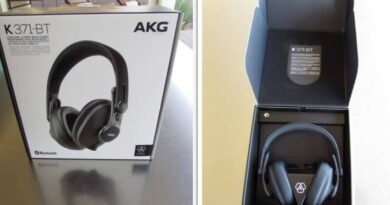Luthier Spotlight: Garry Beers, GGB Basses
Meet Garry Beers, Luthier and owner of GGB Basses…

Bass Musician Magazine: How did you get your start in music?
Garry Beers: I played acoustic guitar as a kid with my mates at school. We decided that one of us should play bass, so we had a contest where the one who knew the least guitar chords would buy a bass – so I lost the contest, bought my first bass, and became the only bass player in the neighborhood. Soon after, I met Andrew Farriss, who had heard that I had a bass, and a few days later, I was jamming with Andrew and Jon Farriss.
Are you still an active player?
Yes, I am still actively writing music and playing bass sessions. I also have an LA-based original band called Ashenmoon.
How did you get started as a Luthier? When did you build your first bass?
I did woodwork in High School and always enjoyed making all sorts of things out of wood.
After finishing high school, I took a course in electronics for a year or so and learned enough to understand basic circuits in guitars, amplifiers, and effects. The best way to learn is to deconstruct and study, so my dad’s garage was littered with old junked radios and any instrument parts I could find.
My first guitars were more like Frankenstein-type creations made out of parts I found here and there. I didn’t really try to build a bass from scratch until I perfected my Quad pickup design and got my patent.
How do you select the woods you choose to build with?
I only use woods that were used at Fender in the 50s, which are my favorite basses and guitars of all time. All my GGB basses are modeled in some way from my INXS bass- a 1958 Fender Precision bass I bought in 1985 in Chicago. I call her “Old Faithful,” and she has an Alder wood body with a maple neck. All of my GGB basses are select Alder wood bodies that I have had extra dried, so they match the resonance of “Old Faithful,” as she has had 66 years to lose all her moisture and become more resonant and alive-sounding. I use plain old Maple necks that I carefully select, and again, I dry the necks to make them sing a little more.

Tell us about your pickups.
I started working on my Quad coil design back in Australia in the ‘90s and then put it to bed, so to speak, until I found an old pickup winding machine at a swap meet here in LA. I taught myself enough about pickup winding to build my first prototype design and worked towards my patented Quad coil design by trial and error. Nordstrand Audio builds the pickups for me here in SOCAL.
What is the reaction of players who pick up your basses?
I build the basses to feel like an old friend. They look and feel vintage, and when you plug them in, you discover the array of vintage sounds available to you from just one pickup. Most of the players I have contact with are established professional players, and they all love the basses. Freddie Washington and Nick Seymour from Crowded House are a couple of players with GGB Basses in their hands.
What are a few things that you are proud of in your instruments and would consider unique?
I would say I am most proud of the patented Quad pickup design. I own the patent from 4 through to 10-string. So far, I have only built 4 and 5-string pickups, but the design is a winner. Split Humbucker / Reverse Split Humbucker / Full Humbucker / Single coil Neck / Single coil bridge. All these sounds come from one passive pickup. I am very proud that my perseverance and desire to have this pickup have made it a reality. Being able to have these sounds in one bass enables the player to have one bass in the studio and on the stage. The only place you can have the GGB Quad pickup is in one of my GGB Basses.
Which one of the basses that you build is your favorite one?
I offer three body shapes and about ten different color options – all based on the ‘50s and early ‘60s custom guitar and car paint styles. I have always been a lover of P basses, but my favorite bass I build is now my XS-1 model- which is a custom Jazz bass body style. It is pretty sexy and is a light, well-balanced, and great-feeling body shape. The other body styles are the XS-2, which is a custom Jazzmaster body and has been the most popular so far- and the XS-3, which is the standard P bass body style. I also offer an XS-58, which is a replica of my “Old Faithful” ‘58 P bass. They are currently available to order now and should be available soon.
Can you give us a word of advice to young Luthiers who are just starting out?
I don’t really consider myself a Luthier in the traditional sense. I just love to build things and tinker. I was always looking to improve things, whether it was a guitar, an amp, a pedal board, or a car. So my advice is to always be curious and learn the basics of what you want to build, and the rest should follow once you decide what you want to say as a designer/builder. People are lucky these days that you can learn pretty much anything from talented people on the internet, but nothing replaces working with and learning from real people in real situations. Seek out like-minded builders and start a discussion.
What advice would you give a young musician trying to find his perfect bass?
Have a good hard think about what you want to say as a player. What is your style, both musically and as a player? There are so many instruments available. Do the research, play the instruments that fit your criteria, and make a decision. But make sure you try a GGB Bass! With all the sound choices my basses offer, with a simple turn of a knob, you may find it easier to find “your” sound.
What is the biggest success for you and for your company?
Well, the company is brand new, and at this point, it is just me, so getting this far in the manufacturing process and now having these amazing basses in my hands is a great achievement, but now comes all the business stuff!!
What are your future plans?
It’s a work in progress. Right now, it’s all about getting the word out and getting the basses into the hands of interested players. I believe in the basses – and the Quad pickup, so hopefully, GGB Basses can become a go-to bass for demanding studio and live players who want sound choices in a gorgeous vintage-style instrument.
Visit online at www.ggbbasses.com



